The Royal Society has announced the six titles shortlisted for the 2023 Royal Society Science Book Prize, sponsored by the Trivedi Family Foundation, which celebrates the best popular science writing from across the globe.
The winner will be revealed in November. The author of the winning book receives £25,000 and £2,500 is awarded to each of the five shortlisted books.
The full shortlist – selected from 255 submissions published between July 1, 2022 and September 30, 2023 – is:
- Nuts and Bolts: Seven Small Inventions That Changed the World (in a Big Way) by Roma Agrawal (Hodder & Stoughton)
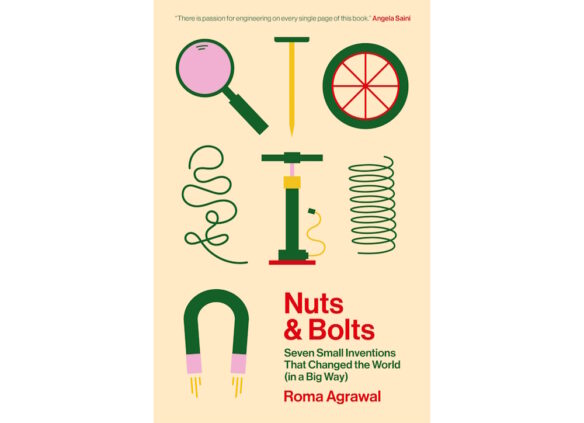
In Nuts and Bolts, award-winning Shard engineer and broadcaster Roma Agrawal deconstructs our most complex feats of engineering into seven fundamental inventions: the nail, spring, wheel, lens, magnet, string and pump. Each of these objects is itself a wonder of design, the result of many iterations and refinements. Together, they have enabled humanity to see the invisible, build the spectacular, communicate across vast distances, and even escape our planet.
Tracing the surprising journeys of each invention through the millennia, Roma reveals how handmade Roman nails led to modern skyscrapers, how the potter’s wheel enabled space exploration, and how humble lenses helped her conceive a child against the odds.
She invites us to marvel at these small but perfectly formed inventions, sharing the stories of the remarkable, and often unknown, scientists and engineers who made them possible. The nuts and bolts that make up our world may be tiny, and are often hidden, but they’ve changed our lives in dramatic ways.
- Jellyfish Age Backwards: Nature’s Secrets to Longevity by Nicklas Brendborg, translated by Elizabeth de Noma (Hodder & Stoughton)
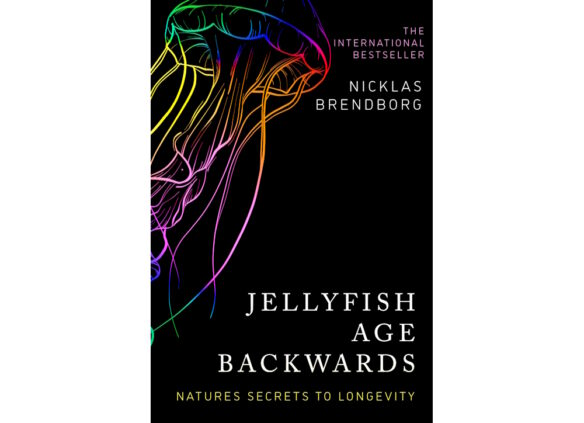
Molecular Biologist Nicklas Brendborg takes us on a journey from the farthest reaches of the globe to the most cutting-edge research to explore everything the natural world and science have to offer on the mystery of aging.
From the centuries-old Greenland shark and backwards-aging jellyfish to the man whofasted for a year and the woman who successfully edited her own DNA, this book follows the thread of every experiment, story, and myth in the search for immortality.
With mind-bending discoveries and physiological gifts that feel closer to magic than reality, Jellyfish Age Backwards will reshape everything you thought you knew about aging – and offer nature’s secrets to unlocking your own longevity.
- Taking Flight: The Evolutionary Story of Life on the Wing by Lev Parikian (Elliott & Thompson)
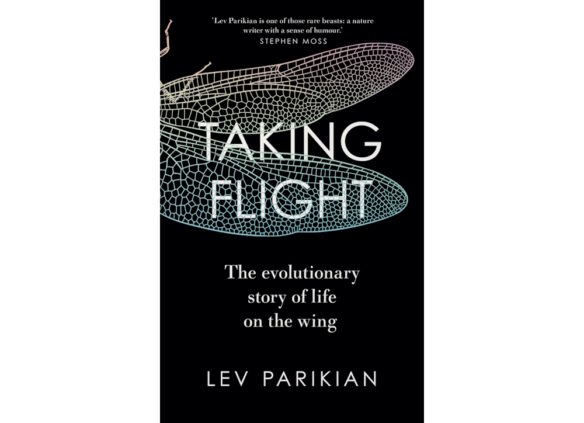
A bird flits overhead. It’s an everyday occurrence, repeated hundreds, thousands, millions of times daily by creatures across the world. It’s something so normal, so entirely taken for granted, that sometimes we forget how extraordinary it is. But take that in for a moment. This animal flies. It. Flies.
The miracle of flight has evolved in hugely diverse ways, with countless variations to flapping and gliding, hovering and diving, murmurating and migrating.
Conjuring lost worlds, ancient species and ever-shifting ecologies, this exhilarating new book is a mesmerising encounter with fourteen flying species: from the first fluttering insect of 300 million years ago to the crested pterosaurs of the Mesozoic Era, from hummingbirds that co-evolved with rainforest flowers to the wonders of dragonfly, albatross, pipistrelle and monarch butterfly with which we share the planet today.
Taking Flight is a mind-expanding feat of the imagination, a close encounter with flight in its myriad forms, urging us to look up and drink in the spectacle of these gravity-defying marvels that continue to shape life on Earth.
- Breathless: The Scientific Race to Defeat a Deadly Virus by David Quammen (VINTAGE – The Bodley Head)
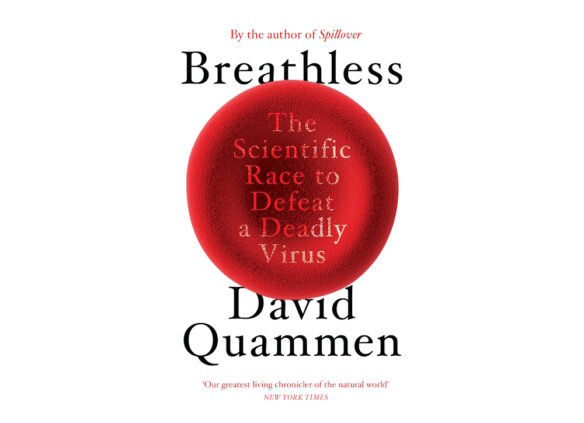
Breathless is the story of the worldwide scientific quest to decipher the coronavirus SARS-CoV-2, trace its source, and make possible the vaccines to fight the Covid-19 pandemic.
Here is the story of SARS-CoV-2 and its fierce journey through the human population, as seen by the scientists who study its origin, its ever-changing nature, and its capacity to kill us. David Quammen expertly shows how strange new viruses emerge from animals into humans as we disrupt wild ecosystems, and how those viruses adapt to their human hosts, sometimes causing global catastrophe. He explains why this coronavirus will probably be a ‘forever virus,’ destined to circulate among humans and bedevil us endlessly. As scientists labour to catch, comprehend and control it, with their high-tech tools and methods, the virus finds ways of escape.
Breathless takes us inside the frantic international effort to understand and control SARS-CoV-2 as if peering over the shoulders of the brilliant scientists who led the chase.
- An Immense World: How Animal Senses Reveal the Hidden Realms Around Us by Ed Yong (VINTAGE – The Bodley Head)
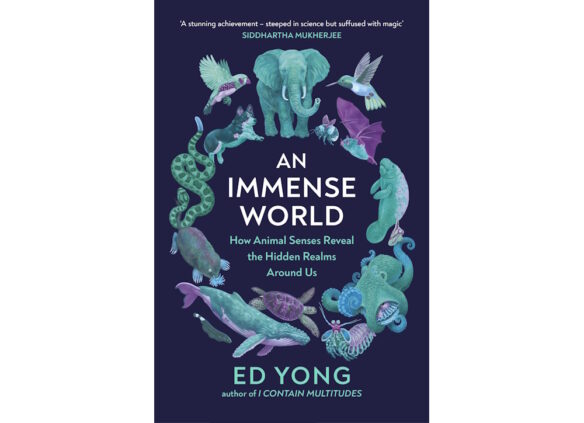
The Earth teems with sights and textures, sounds and vibrations, smells and tastes, electric and magnetic fields. But every animal is enclosed within its own unique sensory bubble, perceiving only a tiny sliver of this world.
In An Immense World, Ed Yong coaxes us beyond the confines of our own senses, welcoming us into previously unfathomable dimensions – the world as it is truly perceived by other animals. Showing us that in order to understand our world we don’t need to travel to other places; we need to see through other eyes.
- The Exceptions: Nancy Hopkins and the Fight for Women in Science by Kate Zernike (Simon & Schuster
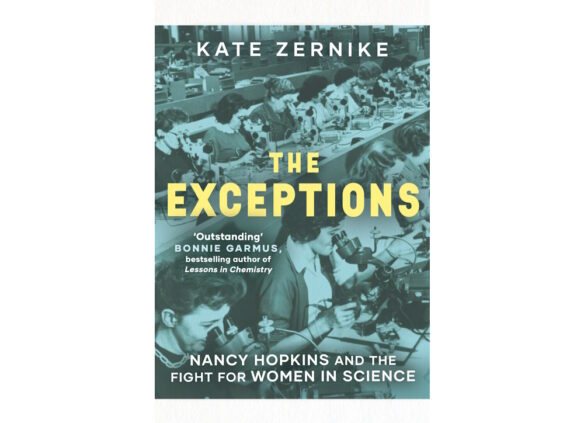
The remarkable untold story of how a group of sixteen determined women used the power of the collective and the tools of science to inspire ongoing radical change. This is a triumphant account of progress, whilst reminding us that further action is needed.
These women scientists entered the work force in the 1960s during a push for affirmative action. Embarking on their careers they thought that discrimination against women was a thing of the past and that science was a pure meritocracy. Women were marginalized and minimized, especially as they grew older, their contributions stolen and erased.
Written by the Pulitzer Prize-winning journalist who broke the story in 1999 for The Boston Globe, when the Massachusetts Institute of Technology made the astonishing admission that it discriminated against women on its faculty, The Exceptions is an intimate narrative which centres on Nancy Hopkins – a surprisingly reluctant feminist who became a hero to two generations of women in science.
In uncovering an erased history, we are finally introduced to the hidden scientists who paved the way for collective change.
[Based on a press release.]
